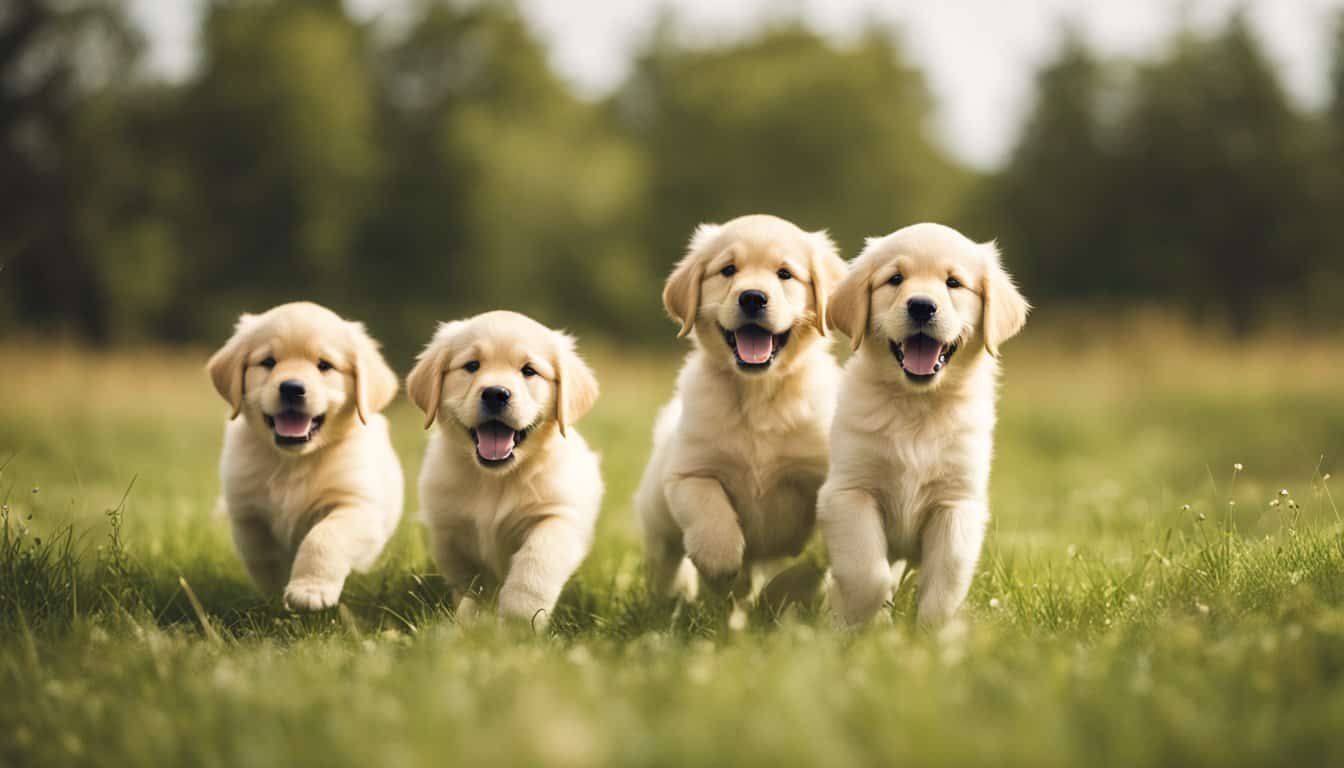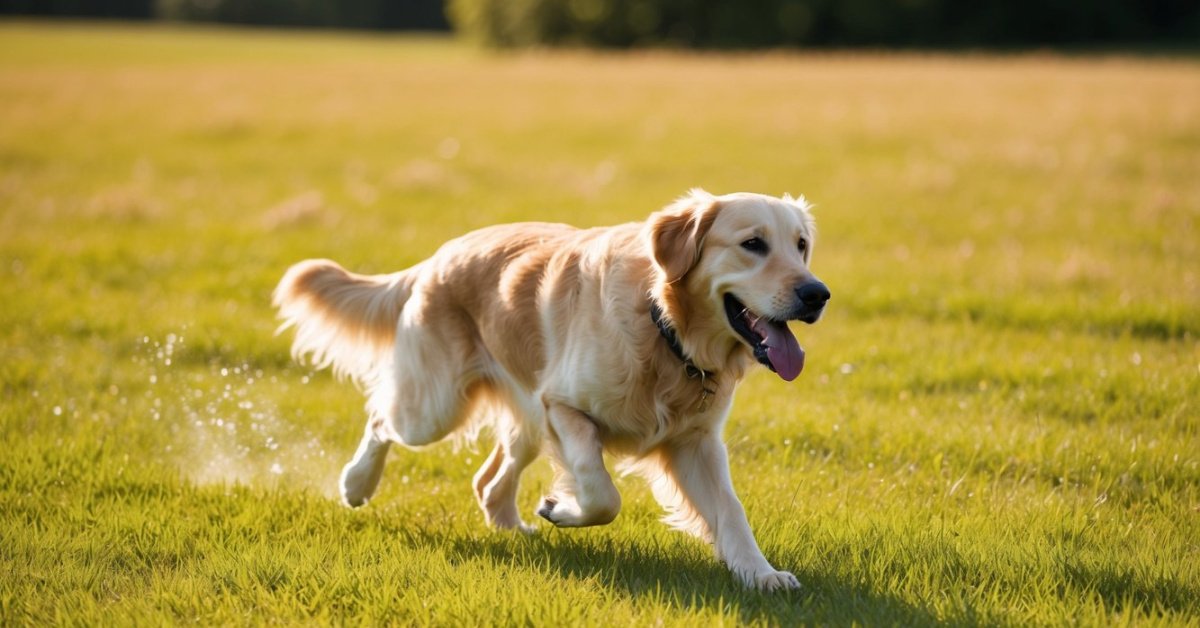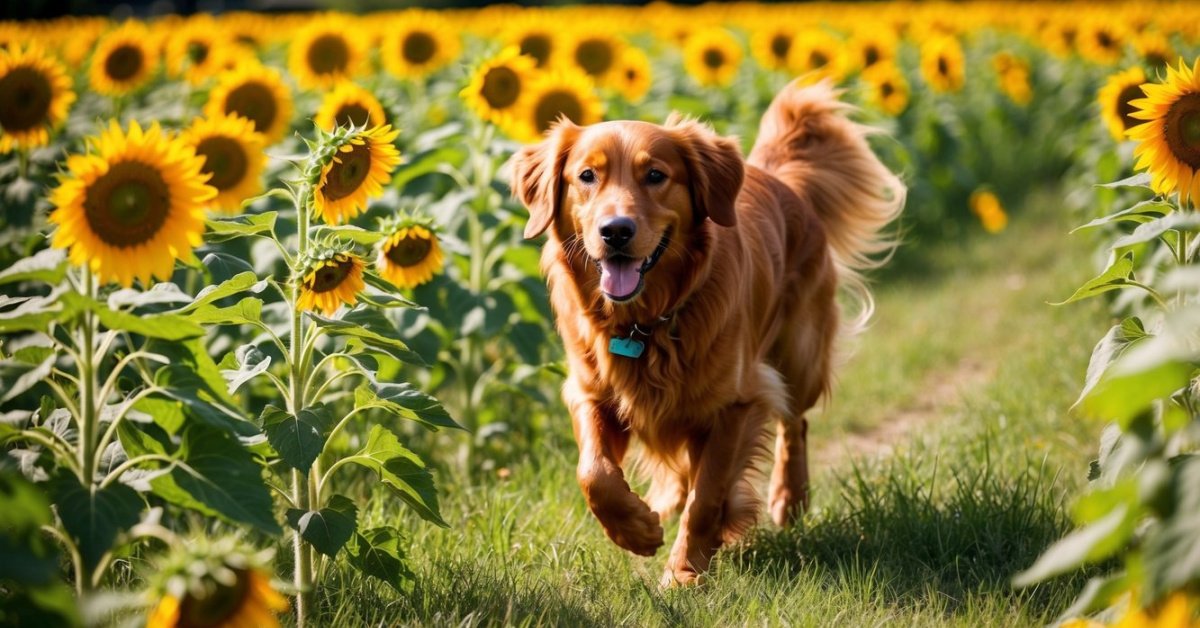Are you considering getting a golden retriever as your new furry family member? One important aspect to consider is their diet. You may be wondering, just how much do golden retrievers eat? Well, in this article, we’ll explore the dietary needs of golden retrievers and provide you with some helpful insights to ensure your pup stays healthy and well-nourished. So, let’s dive in and discover the answer to this common question!
When it comes to feeding golden retrievers, it’s essential to find the right balance. These lovable dogs have a hearty appetite, but it’s important to avoid overfeeding them. In this article, we’ll discuss the ideal portion sizes and feeding frequency for golden retrievers, helping you establish a healthy eating routine for your furry friend. So, let’s explore how much golden retrievers should eat and how you can keep them satisfied without overindulging.
Maintaining a healthy weight is crucial for golden retrievers, as excess weight can lead to various health issues. So, how much food should you be giving your golden retriever? In this article, we’ll provide you with some general guidelines on portion sizes and help you understand the factors that can influence your dog’s individual dietary needs. By following these tips, you can ensure that your golden retriever receives the right amount of food to keep them happy, healthy, and full of energy.
How Much Does Golden Retrievers Eat
As a dog lover with a golden retriever and a Goldendoodle, you understand the importance of providing your furry friends with the right amount of food. When it comes to feeding your golden retriever, figuring out how much they need to eat can sometimes be a bit of a challenge. The quantity of food will depend on factors such as their age, weight, activity level, and overall health.
Golden retrievers are known to have a healthy appetite and can sometimes overeat if not properly regulated. However, it is important to keep them at a healthy weight to avoid potential health issues.
On average, a golden retriever should consume about 2 to 3 cups of dry dog food per day. This can be divided into two meals, or if your schedule allows, you can provide them with smaller portions throughout the day to prevent overeating. Remember to consult with your veterinarian to determine the specific dietary needs of your golden retriever based on their individual circumstances.
Keep in mind that it’s not just the quantity of food that matters but also the quality. Choose a high-quality dog food that provides the necessary nutrients, vitamins, and minerals to support their overall health. Reading the labels and consulting with your veterinarian will help you make the best choice for your furry friend.
Monitoring your golden retriever’s weight is essential to ensure they are maintaining a healthy body condition. Regular weigh-ins and body condition assessments can help you determine if you need to adjust their portion size. If you notice your golden retriever gaining weight, it may be necessary to reduce their daily caloric intake. On the other hand, if they are losing weight or appear too thin, consult with your veterinarian about increasing their food intake.
Remember, every golden retriever is unique, and their individual dietary needs may vary. By paying attention to their overall health, activity levels, and body condition, you can ensure that your golden retriever is receiving the appropriate amount of food to keep them happy, healthy, and energetic.
Factors Affecting Your Golden Retriever’s Food Intake
As a dog lover who has owned both golden retrievers and Goldendoodles, and with my experience working at animal shelters and veterinary offices, I understand the importance of providing the right amount of food for your furry friend. When it comes to feeding your golden retriever, there are several factors that can affect their food intake. Let’s take a closer look at these factors:
1. Age: The age of your golden retriever plays a significant role in determining their food intake. Puppies require more calories and nutrients to support their growth and development, so they may need to eat more frequently than adult dogs. As they get older, their metabolism slows down, and their activity level decreases, which means they may need fewer calories.
2. Weight and Body Condition: Maintaining a healthy weight is crucial for your golden retriever’s overall well-being. If your dog is overweight, you may need to reduce their food intake to help them shed those extra pounds. On the other hand, if your dog is underweight, you may need to increase their food portion sizes or switch to a higher-calorie diet to help them gain weight.
3. Activity Level: The amount of exercise your golden retriever gets on a daily basis can influence their food intake. Dogs with high activity levels may require more calories to fuel their energy levels, whereas less active dogs may need fewer calories to prevent weight gain.
4. Overall Health: Certain health conditions, such as allergies, digestive issues, or chronic illnesses, can impact your golden retriever’s food intake. In such cases, it’s important to work closely with your veterinarian to develop a tailored feeding plan that suits their specific needs.

« Golden Retriever Owners Beware: Discover the Surprising Age When Chewing Habits Fade Away
Surprising Secrets Revealed: The Ultimate Guide to Grooming Golden Retrievers and Goldendoodles »
5. Special Dietary Needs: Some golden retrievers may have special dietary needs, such as food allergies or sensitivities. In these cases, it’s important to choose a high-quality dog food that accommodates their specific requirements and work with your veterinarian to ensure they are getting the right balance of nutrients.
By considering these factors and monitoring your golden retriever’s weight and body condition on a regular basis, you can ensure that they receive the right amount of food to keep them healthy and happy. Remember, every dog is unique, so it’s essential to make adjustments to their food intake based on their individual needs.
Understanding Golden Retriever’s Nutritional Needs
As a dog lover and owner of both a golden retriever and a Goldendoodle, I understand the importance of providing our furry friends with the right nutrition. Having worked at animal shelters and veterinary offices, I’ve seen firsthand how proper diet plays a crucial role in their overall health and happiness. In this section, we’ll delve into the nutritional needs of golden retrievers and how to meet them.
Golden retrievers are active and energetic dogs, which means they require a balanced diet that provides them with the energy they need. The right amount of food for your golden retriever depends on several factors, including age, weight, activity level, overall health, and any special dietary needs they may have.
To ensure your golden retriever gets the nutrition they need, feeding them high-quality dog food is essential. Look for a brand that contains real meat as the main ingredient and is free from artificial additives and fillers. It’s recommended to feed them 2 to 3 cups of dog food per day, divided into two meals or smaller portions throughout the day.
Regular weigh-ins and body condition assessments are important to monitor your golden retriever’s weight. If you notice they are gaining weight, you may need to adjust their portion sizes accordingly. On the other hand, if they are losing weight or appear too thin, it may be necessary to increase their food intake.
It’s important to note that individual golden retrievers may have different nutritional needs based on their specific circumstances. If you have any concerns about your golden retriever’s diet, it’s always best to consult with a veterinarian. They can provide you with personalized recommendations based on your dog’s age, weight, and activity level.
Recommended Daily Food Portion for Golden Retrievers
As a dog lover who has owned both a golden retriever and a Goldendoodle, I understand the importance of providing your furry friend with the right amount of food. Feeding your golden retriever the recommended daily food portion is crucial for their overall health and well-being. Let’s dive into the details!
1. Consider their age and weight
Golden retrievers have different nutritional needs at various stages of their life. Puppies require more calories for growth, while older dogs may need a reduced portion to maintain a healthy weight. Additionally, take into account your dog’s weight. Overweight golden retrievers are prone to health issues, so it’s essential to monitor their food intake accordingly.

2. Assess their activity level
How active is your golden retriever? Does he spend most of his time frolicking in the backyard or lounging on the couch? An active dog will require more calories to fuel their energy, while a sedentary dog will need fewer calories. Adjust the portion size based on their activity level to ensure they remain fit and energetic.
3. Monitor their body condition
Regularly check your golden retriever’s body condition score. You should be able to feel their ribs without excessive fat covering, and they should have a visible waistline from above. If your dog is gaining weight, consider reducing their portion size. If they’re losing weight or appearing too thin, increase their food intake.
4. Consult with a veterinarian

For personalized recommendations tailored to your golden retriever’s specific needs, consult with your veterinarian. They can provide expert guidance on portion sizes, taking into account your dog’s age, weight, activity level, and overall health. A vet’s professional advice is invaluable in ensuring your golden retriever receives the proper nutrition.
Common Feeding Mistakes to Avoid
Feeding your furry friend is an important responsibility as a dog owner. However, there are a few common feeding mistakes that you should avoid to ensure your golden retriever or Goldendoodle stays healthy and happy. Take a look at these common pitfalls and make sure you’re not making them:
1. Overfeeding: It can be tempting to give your pup extra treats or larger portions, but overfeeding can lead to obesity and related health issues. Stick to the recommended portion sizes based on your dog’s weight and activity level. If you’re unsure about the right amount, consult with your veterinarian. Remember, it’s better to provide nutritious meals than too much food.
2. Feeding the Wrong Food: Dogs thrive on a well-balanced diet that includes high-quality dog food. Avoid feeding your golden retriever or Goldendoodle human food or foods that contain artificial additives and fillers. Opt for dog food that lists real meat as the main ingredient. Look for brands that meet the Association of American Feed Control Officials (AAFCO) standards to ensure your dog is getting the nutrients they need.
3. Inconsistent Meal Schedule: Dogs are creatures of habit, and having a consistent meal schedule can help regulate their digestion. Avoid feeding your furry friend sporadically or leaving food out all day. Instead, establish a routine by feeding them at the same times each day. Dividing their meals into two or three smaller portions can also help prevent bloating and aid digestion.

4. Ignoring Allergies and Special Dietary Needs: Just like humans, dogs can have food allergies or special dietary needs. Pay attention to any signs of allergies, such as excessive itching or digestive issues, and consult with your vet if you suspect your dog has specific dietary requirements. Your veterinarian can recommend suitable dog food options or suggest an elimination diet to identify any potential allergens.
By avoiding these common feeding mistakes, you can ensure that your golden retriever or Goldendoodle stays happy and healthy. Remember, providing a nutritious diet and maintaining a regular feeding schedule are essential for their overall well-being. Keep in mind the unique needs of your dog and consult with your veterinarian for personalized guidance on their specific diet.
Conclusion
Feeding your golden retriever the right amount of food is crucial for their overall health and well-being. By following the guidelines outlined in this article, you can ensure that your furry friend receives the proper nutrition they need to thrive.
Remember to feed your golden retriever 2 to 3 cups of high-quality dog food per day, divided into two meals or smaller portions throughout the day. Regular weigh-ins and body condition assessments will help you monitor their weight and adjust portion sizes as needed.
Consider factors such as age, weight, activity level, and any special dietary needs your golden retriever may have. Consulting with a veterinarian can provide personalized recommendations based on these factors.

Avoid common feeding mistakes, such as overfeeding, feeding the wrong food, inconsistent meal schedules, and ignoring allergies or special dietary needs. Opt for high-quality dog food that contains real meat as the main ingredient and is free from artificial additives and fillers.
By following these guidelines and providing a nutritious diet, you can ensure that your golden retriever stays healthy, happy, and full of energy for years to come.













![PetDroid Interactive Dog Toys Dog Ball, [Newly Upgraded] Durable Motion](https://m.media-amazon.com/images/I/41P-nlk1L0L._SL500_.jpg)



